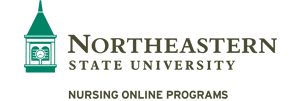A family unit can reveal much about a person’s physical, mental and emotional health. Yet, that component is often ignored in health strategies — including prevention and treatment of various medical conditions.
Family science is integral to a more whole-person approach to health and well-being, which is why institutions like Northeastern State University (NSU) emphasize integrating family centered care into nursing curricula. NSU’s online Registered Nurse (RN) to Bachelor of Science in Nursing (BSN) program includes the Person and Family Centered Nursing Care course, designed to instill in aspiring nurses the principles of individual health in the family context.
What Is Involved in Family Science?
Family science is the comprehensive study of families and the complex relationships within them. As a multidisciplinary field, it marries elements from psychology, sociology, anthropology and economics to provide a holistic, culturally competent view of familial units. The following represents a comprehensive look at what this sub-field encompasses:
Dynamics, Intricacies and Patterns
Beyond just the surface interactions, family science dives deep into the roles each member plays within the family, the power dynamics that might exist and the patterns of communication or behavior that repeat over generations. It seeks to understand the overt and unspoken rules governing families, like how decisions are made or how conflicts are resolved.
Adaptation and Evolution
Families aren’t static. They go through phases, face challenges and celebrate milestones. How a family copes with financial difficulties, for instance, or how they come together during a crisis, are areas of interest in family science. Family science explores the families’ resilience, ability to adapt and evolution — from nuclear families to extended ones, from traditional designs to modern dynamics.
Framework for Understanding
Family science provides tools and theories to decipher intricate familial relationships. This means recognizing patterns of attachment, understanding the significance of family rituals or decoding the impact of external factors like societal norms or economic pressures on a family’s dynamics.
The Integral Family Unit
At the heart of family science is the belief that families are the cornerstone of society. They are most individuals’ first point of socialization, education and support. The health of a society largely reflects the well-being of its families. Family science recognizes this and emphasizes the importance of family systems.
Every family has its own system — a unique way members interact, fulfill roles and meet each other’s needs. Understanding these systems is crucial, as they influence an individual’s behavior, choices and overall well-being.
Understanding the Role of Family Science in Nursing Practice
Nursing isn’t just about tending to an individual patient’s needs. It’s also about understanding the familial and social contexts in which they thrive or struggle. By integrating family science into nursing, practitioners gain insights into the holistic picture, considering the individual and their familial environment.
Equipped with this knowledge, graduates of NSU’s online RN to BSN program can craft therapeutic relationships that consider a patient’s familial background. This approach promotes family-centered care, where the family becomes essential to the healing and care process. It’s about understanding that families, like individuals, have their dynamics, strengths and vulnerabilities.
When families are actively involved, patients often experience better outcomes, reduced hospital stays and improved satisfaction.
Challenges of Integrating Family Science Into Nursing
Despite its benefits, integrating family science into nursing isn’t without challenges. For example, the following often serve as barriers to a family science approach:
- Time constraints: Incorporating family assessments and interventions can be time-consuming
- Familial conflicts: Navigating family dynamics can be complex, especially in stressful situations
- Training and education: Continuous training is essential to stay updated on family science principles and their application
The Future of Family Science in Nursing
As healthcare becomes increasingly holistic, the integration of family science into nursing will continue to expand. Nurses, more than just caregivers, are becoming essential connectors, bridging the gap between patients and their families and ensuring cohesive care that addresses medical and familial needs.
By integrating family science into their practice, nurses can ensure that care considers the individual and family, leading to better outcomes and more comprehensive care. The future of nursing, with the inclusion of family science, applies a whole-person approach to patient care.
Learn more about Northeastern State University’s online Registered Nurse to Bachelor of Science in Nursing program.


